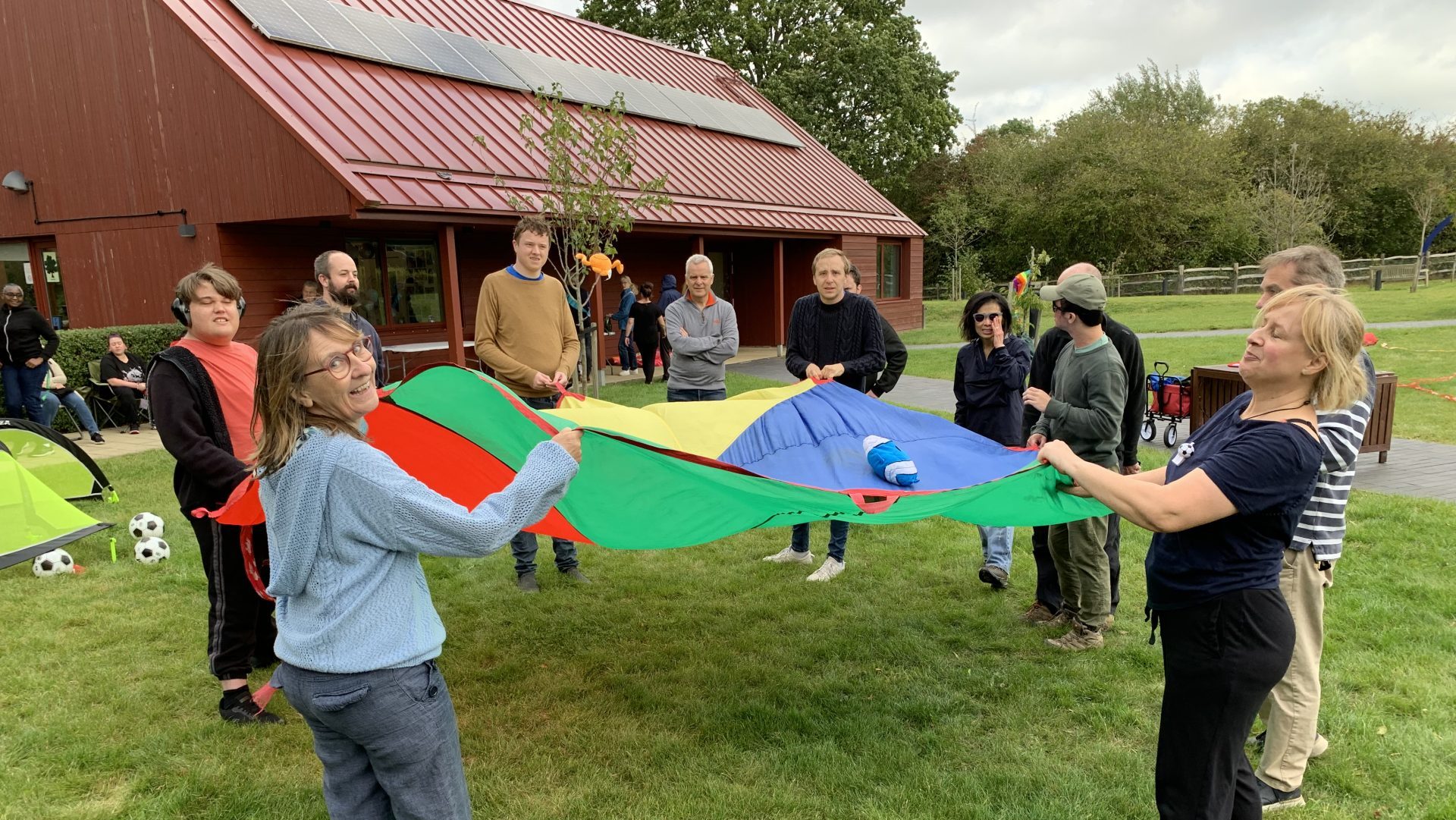Deirdre is mother to 20-year-old Newman, who has autism as well as complex needs. He’s outgoing, energetic and great company. He’s also a big eater and enjoys climbing and running around outdoors. Despite struggling with communication, he loves to be with other people. But Newman currently spends his days sitting alone in what Deirdre describes as “a box”, the only social accommodation the council had to offer when the two found themselves homeless last year.
When Newman was 17, Deirdre, her husband and their then-seven-year-old daughter were at breaking point. “We realised we couldn’t do it much longer,” Deirdre says. “It was getting harder and harder to stretch ourselves to meet his needs.” Despite the council allocating Newman a local, purpose-built flat, for reasons unclear to Deirdre they seemed reluctant to move him into it anytime soon.
Over the following two years, both Deirdre and her husband suffered nervous breakdowns and their relationship eventually broke down too. In desperation, Deirdre left home with Newman and called the council to tell them a vulnerable adult was now homeless, forcing them to find him emergency accommodation. “It had to get to that point for them to do something,” Deirdre says. “We had been through absolute hell.”
A month later Newman moved into supported accommodation, the flat where he remains today. Some days he doesn’t leave the tiny space at all, sitting alone watching YouTube videos. He rarely has any interaction with the other residents as there’s no shared communal space. “He’s literally like a caged animal in that flat,” Deirdre describes.
Early last year, during a period when staff turnover was especially high, Newman began self-harming. What started as him clenching his hands tightly into his palms turned into skin picking and at one point he had nine open wounds on his body. It was a brutal sign of the emotional stress that the instability of the care staff was causing and Deirdre knew she had to act.
Inspired by Linden Farm, Deirdre has formed a group with nine other sets of parents in Dorset who, like her, want to build a local alternative to the current social care options. They’re currently looking for land they can build on and will then present a proposal to the council. “We all want the same thing, not only for our children but also for the next generation,” Deirdre says. “We want to be the pioneers of something new because this situation can’t continue.”
Newman’s experience of sub-standard care and unsuitable accommodation is not unique. Forty years of privatisation in the sector have left local authorities and the NHS with little control over services. The common assumption behind privatisation was that it would both increase efficiency and reduce cost. However, with lax monitoring of contracts and vague specifications of standards, privatisation can lead to a race to the bottom in terms of quality of care.
Deirdre is adamant that her son’s quality of life should be the priority. “We have to create a world where people matter more than money,” she says, adding: “The thought of other parents going through what I did a year ago is horrifying.”
The Disabled Children’s Partnership found that only one in seven disabled young people had the correct level of support from social care. More than 70% of parents reported their disabled child’s health had deteriorated due to delayed or reduced support. According to Mencap, over 2,000 people with a learning disability are currently being held in inpatient mental health hospitals.
Living hundreds of miles away from Deirdre, Sophie has had to battle throughout her son’s life to get him the support he needs. Twenty-three-year-old Tom has limited motor skills, severe learning difficulties, epilepsy, is non-verbal and a full-time wheelchair user. He can’t drive his own powerchair, so is always dependent on someone else – unless he’s in the water, where he can walk unaided. Like Newman, Tom loves to be outside. He’s recently developed a taste for classical music. “It’s been really nice,” says Sophie. “Instead of endless Trolls movie songs, we’re listening to a bit of Bach.”
When Tom turned 15 it became clear his school couldn’t cope – wheeling him out into the corridor to ‘calm down’ being their main strategy to address his increasingly challenging behaviours. Surrey County Council resisted Sophie’s request for a more suitable school and forced her and her husband to take the case to tribunal. They won – but it came at a massive financial and emotional cost. “They push it to the wire because they want you to give up,” Sophie explains.
Sophie now senses another battle on the horizon as, when Tom reaches 25, he will have to leave college, and she doesn’t know where he will go next. It’s not safe or physically possible for Sophie to look after Tom at the family home and, like all parents of children with learning disabilities, Sophie is acutely aware of the need to have suitable accommodation and care for Tom in place before her and her husband pass away. Like Peter and Sally, she’s haunted by the tales of abuse in care homes. “My son is so vulnerable, he wouldn’t be able to tell anyone,” she explains. But she’s adamant: “I’m never going to let that happen.”
Linden Farm is the kind of environment Sophie envisages for Tom going forward. Like Deirdre, she too has joined forces with a group of local parents, hell-bent on building an alternative future for their children. They’re currently in the process of putting together a proposal to the council and Sophie is gearing up to battle for Tom, again. “I’m going to fight,” she says. “Nobody’s going to do it for me.”
Deirdre and Sophie are just two of the hundreds of parents who have contacted Peter and Sally. And now, the couple are campaigning to expand their new model of social care for disabled adults nationwide. Peter is adamant that, even where local authorities are short of cash, through collaboration and innovation, parents and councils can create change.
“They’ve each got a problem,” he says. “They have to find a solution together.”









